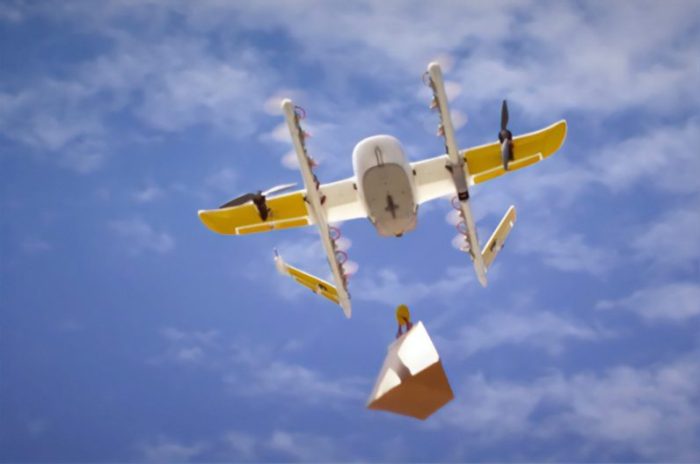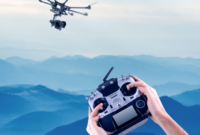Europe licensed cargo drone eu funding – Europe Licensed Cargo Drone: EU Funding Fuels Innovation. The European Union is actively investing in the development of cargo drones, recognizing their potential to revolutionize logistics and contribute to a more sustainable future. This investment is driven by the desire to establish Europe as a global leader in this emerging technology and to reap the economic and environmental benefits of drone-based transportation.
This blog delves into the intricate landscape of European cargo drone regulation, exploring the licensing requirements, regulatory frameworks, and funding opportunities that are shaping this exciting industry. We’ll also discuss the potential impact of cargo drones on European logistics, examining the benefits and challenges of integrating this technology into existing networks.
Join us as we navigate the complexities of this rapidly evolving sector and explore the future of cargo drone operations in Europe.
The European Drone Landscape
The European drone industry is experiencing rapid growth, driven by technological advancements, evolving regulations, and increasing demand across various sectors. This landscape is characterized by a diverse range of players, from established aerospace giants to innovative startups, each contributing to the development and deployment of drones for a multitude of applications.
Key Players and Regulations
The European drone industry is characterized by a diverse range of players, each contributing to the development and deployment of drones for a multitude of applications.
- Established Aerospace Companies:Companies like Airbus, Safran, and Leonardo have a long history in aerospace and are actively developing drone technologies for various sectors, including defense, logistics, and infrastructure inspection. These companies bring significant resources and expertise to the drone industry.
- Innovative Startups:Europe is home to a vibrant ecosystem of drone startups, such as Auterion, Drone Harmony, and Flyability, developing innovative solutions for specific applications. These startups are often agile and focused on developing cutting-edge technologies, pushing the boundaries of drone capabilities.
- Research Institutes and Universities:Numerous research institutions and universities across Europe are actively involved in drone research and development. These institutions contribute to the development of new technologies, drone software, and advanced automation capabilities.
The European Union (EU) has implemented comprehensive regulations for drone operations to ensure safety, security, and privacy. The EU’s Unmanned Aircraft Systems (UAS) Regulation (EU) 2019/947, also known as the “Drone Regulation,” provides a framework for the safe and responsible use of drones in European airspace.
This regulation establishes categories for drones based on their weight and capabilities, outlining specific requirements for operation, pilot licensing, and airspace authorization.
Market Size and Growth
The European drone market is projected to experience significant growth in the coming years, driven by increasing demand across various sectors. The market is expected to reach a value of over €10 billion by 2025, with significant contributions from the following sectors:
- Logistics and Delivery:Drones are increasingly being used for last-mile delivery, particularly in urban areas where traffic congestion is a major challenge. Companies like Amazon and DHL are actively exploring drone delivery solutions, and several startups are developing specialized delivery drones.
- Agriculture:Drones are revolutionizing agricultural practices, providing farmers with real-time data on crop health, soil conditions, and pest infestations. Drones can also be used for precision spraying and seeding, improving efficiency and reducing chemical usage.
- Infrastructure Inspection:Drones are increasingly being used for inspecting bridges, pipelines, power lines, and other critical infrastructure, offering a safer and more efficient alternative to traditional methods. This application is particularly valuable for inspecting hard-to-reach areas and hazardous environments.
- Security and Surveillance:Drones are used by law enforcement agencies, security companies, and governments for surveillance, border patrol, and search and rescue operations. Their ability to provide aerial views and real-time data makes them valuable tools for these applications.
- Film and Photography:Drones have become indispensable tools for filmmakers, photographers, and videographers, offering stunning aerial perspectives and unique angles. This application has also fueled the development of advanced drone cameras and image processing software.
Challenges and Opportunities
Despite the significant growth potential, the European drone industry faces several challenges, including:
- Regulatory Complexity:Navigating the complex regulatory landscape can be a significant challenge for drone operators, especially with the implementation of the EU’s Drone Regulation. The regulation requires operators to comply with various requirements, including pilot licensing, airspace authorization, and data privacy regulations.
When investigating detailed guidance, check out martime industry drowning from cybercriminal threat now.
- Public Perception:Public perception of drones can be a challenge, with concerns regarding privacy, security, and noise pollution. Addressing these concerns through education and responsible operation is crucial for the industry’s acceptance and growth.
- Integration into Airspace:Integrating drones into existing airspace systems is a complex task, requiring collaboration between drone operators, air traffic control authorities, and aircraft manufacturers. This integration requires the development of advanced technologies and procedures to ensure safety and efficiency.
- Battery Life and Range:The limited battery life and range of drones can be a constraint for certain applications, particularly for long-distance delivery or extended surveillance operations. Advancements in battery technology and drone design are needed to address this challenge.
Despite these challenges, the European drone industry presents significant opportunities for innovation and growth.
Cargo Drone Licensing and Regulation
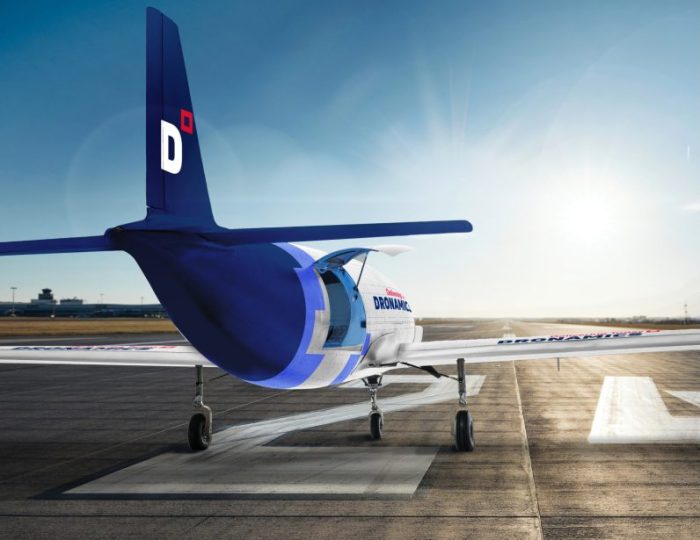
The European Union (EU) is actively working to establish a comprehensive regulatory framework for drone operations, including cargo drones, to ensure safe and secure integration into the airspace. This framework addresses various aspects, including licensing requirements, operational procedures, and safety standards.
Licensing Requirements for Cargo Drones
The EU’s regulatory framework for cargo drones Artikels specific licensing requirements for operators. These requirements aim to ensure that only qualified individuals and organizations are permitted to operate cargo drones, minimizing the risk of accidents and unauthorized activities.
- Operator Certification:Operators must obtain a valid license from the national aviation authority in their respective EU member state. This certification typically requires the operator to demonstrate proficiency in drone operation, knowledge of relevant regulations, and adherence to safety protocols.
- Drone Registration:All cargo drones operating within the EU must be registered with the relevant national authority. This registration process typically involves providing information about the drone’s specifications, owner, and intended use.
- Operational Authorizations:Specific authorizations may be required for certain cargo drone operations, depending on factors such as the weight of the payload, the flight distance, and the operating environment. These authorizations often involve a detailed risk assessment and a plan for mitigating potential hazards.
Regulatory Frameworks Governing Drone Operations
The EU’s drone regulations are based on several key frameworks that aim to ensure safety, security, and airspace management. These frameworks encompass various aspects of drone operations, including flight operations, technical requirements, and emergency procedures.
- EU Aviation Safety Regulations (EU Regulation 216/2008):This regulation establishes the fundamental principles for aviation safety within the EU. It includes provisions for aircraft certification, airworthiness, and operational procedures, which are applicable to drone operations as well.
- EU Regulation on Unmanned Aircraft Systems (EU Regulation 2019/947):This regulation specifically addresses the operation of drones within the EU. It establishes a framework for licensing, registration, and operational requirements for drone operators, as well as provisions for airspace management and safety.
- EU Regulation on Cybersecurity (EU Regulation 2019/881):This regulation focuses on cybersecurity aspects related to drone operations, including data protection, security vulnerabilities, and mitigation measures. It aims to ensure the resilience of drone systems against cyberattacks and unauthorized access.
Challenges and Solutions for Streamlining Drone Licensing Processes
While the EU’s drone regulations are comprehensive, there are ongoing efforts to streamline the licensing processes and address challenges faced by drone operators.
- Harmonization of National Regulations:Differences in national regulations across EU member states can create complexities for drone operators seeking to operate in multiple countries. Harmonization efforts aim to simplify the licensing process by establishing common standards and procedures.
- Digitalization of Licensing Processes:Traditional licensing processes can be time-consuming and bureaucratic. Digitalization initiatives aim to streamline these processes by providing online platforms for applications, approvals, and data management.
- Development of Standardized Training Programs:Standardized training programs for drone operators can ensure consistent skill levels and knowledge across the EU. This can help to reduce the need for extensive individual assessments during the licensing process.
EU Funding for Cargo Drone Projects
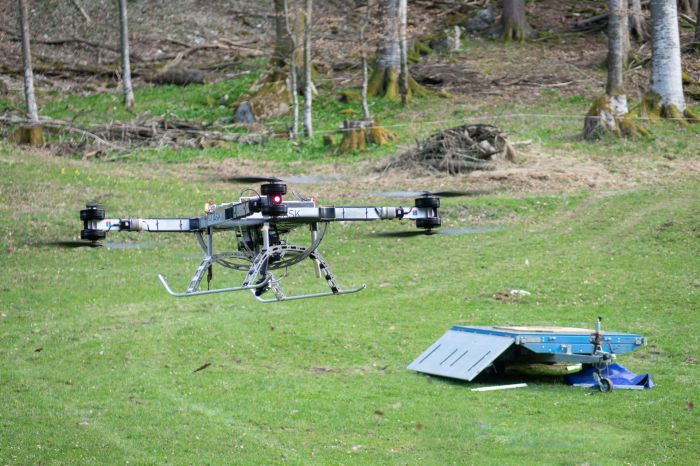
The European Union (EU) recognizes the transformative potential of drones, particularly in the cargo sector, and has implemented various funding programs and initiatives to accelerate their development and deployment. This commitment reflects the EU’s ambition to establish itself as a global leader in drone technology, fostering innovation, economic growth, and societal benefits.
EU Funding Programs and Initiatives
The EU offers a range of funding programs and initiatives specifically tailored to support drone technology development, including cargo drone projects. These programs aim to provide financial assistance to research and development activities, pilot projects, and infrastructure development. The EU’s Horizon Europe program is a key funding mechanism for drone projects.
This program focuses on research and innovation, with specific calls dedicated to drone technology. For instance, the “Green Deal” call addresses sustainable and innovative solutions, including the use of drones for logistics and transportation. Another prominent program is the Connecting Europe Facility (CEF), which supports infrastructure projects, including those related to drone operations.
The CEF provides funding for developing and deploying drone infrastructure, such as airspace management systems, ground control stations, and charging infrastructure.
Funding Opportunities for Cargo Drone Projects
The EU offers a variety of funding opportunities specifically tailored to cargo drone projects, encompassing different aspects of the value chain.
- Research and Development:EU funding programs support research and development projects aimed at advancing drone technology, including areas such as autonomous flight, payload optimization, and advanced sensor integration. These projects can focus on developing new technologies, improving existing systems, or addressing specific challenges related to cargo drone operations.
- Pilot Projects:Funding is available for pilot projects that demonstrate the feasibility and benefits of cargo drone operations in real-world settings. These projects often involve partnerships between drone companies, logistics providers, and other stakeholders. They can explore various applications, such as delivering medical supplies to remote areas, transporting goods in urban environments, or optimizing last-mile delivery.
- Infrastructure Development:The EU supports infrastructure projects that enable the safe and efficient operation of cargo drones. This includes developing drone corridors, airspace management systems, ground control stations, and charging infrastructure. These projects aim to create an enabling environment for cargo drone operations and promote their widespread adoption.
Criteria and Requirements for Securing EU Funding
To secure EU funding for cargo drone projects, applicants must meet specific criteria and requirements. These include:
- Project Relevance:Projects must align with the EU’s strategic priorities, such as promoting innovation, sustainability, and economic growth. They should address relevant challenges and demonstrate a clear societal impact.
- Project Excellence:The project must be scientifically sound and technically feasible. It should be based on a strong research methodology and have a well-defined implementation plan.
- Consortium Formation:Projects typically require the formation of a consortium involving different stakeholders, such as drone companies, research institutions, logistics providers, and regulatory bodies. This collaborative approach ensures the project’s feasibility and impact.
- Financial Sustainability:Applicants must demonstrate the project’s financial sustainability beyond the EU funding period. This may involve securing private investment, generating revenue from commercial operations, or exploring other funding sources.
Impact of Cargo Drones on European Logistics
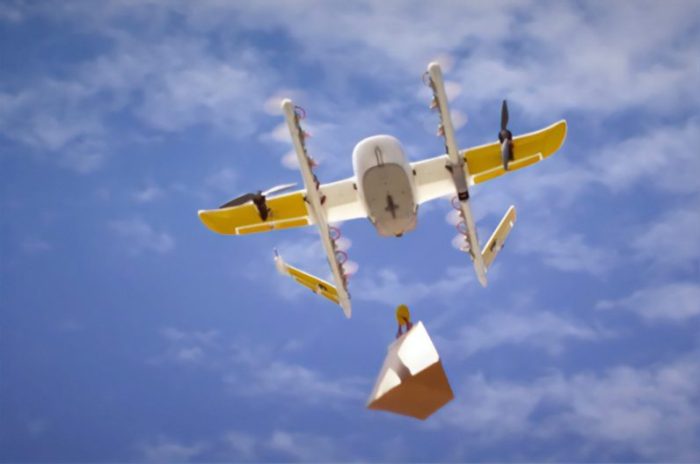
The emergence of cargo drones presents a transformative opportunity for the European logistics sector, with the potential to revolutionize how goods are transported and delivered across the continent. The integration of drones into traditional logistics networks promises to bring significant benefits, while also presenting challenges that require careful consideration and strategic planning.
Benefits of Cargo Drones in European Logistics
The use of cargo drones in European logistics offers several potential benefits, including:
- Increased Efficiency:Drones can operate autonomously, reducing the need for human intervention and enabling faster delivery times. Their ability to navigate complex terrains and reach remote areas further enhances their efficiency.
- Reduced Costs:Compared to traditional transportation methods, cargo drones can offer significant cost savings, particularly for shorter distances and last-mile deliveries. This is due to lower fuel consumption and reduced labor requirements.
- Improved Sustainability:Drones can contribute to a more sustainable logistics sector by reducing carbon emissions and traffic congestion. Their electric propulsion systems offer a cleaner alternative to traditional vehicles.
- Enhanced Accessibility:Cargo drones can access areas that are difficult or impossible to reach by traditional vehicles, such as mountainous regions or disaster zones. This can improve the delivery of essential goods and services to underserved communities.
Challenges of Integrating Cargo Drones into European Logistics
Despite the potential benefits, integrating cargo drones into traditional logistics networks presents several challenges:
- Regulatory Framework:Establishing a comprehensive and harmonized regulatory framework for cargo drone operations is crucial to ensure safety, security, and responsible integration into the airspace. This requires collaboration among various stakeholders, including aviation authorities, drone manufacturers, and logistics companies.
- Public Acceptance:Public perception and acceptance of cargo drone operations is essential for their widespread adoption. Addressing concerns related to noise pollution, privacy, and safety is crucial for building trust and fostering public support.
- Infrastructure Development:Establishing dedicated drone landing sites, charging stations, and other supporting infrastructure is essential for efficient and scalable drone operations. This requires investments and coordination among various stakeholders, including governments, logistics companies, and infrastructure providers.
- Technological Advancements:Continuous development of drone technology, including range, payload capacity, and autonomous flight capabilities, is necessary to address the specific needs of various logistics applications. This requires ongoing research and investment in innovation.
Potential Applications of Cargo Drones Across Industries, Europe licensed cargo drone eu funding
Cargo drones have the potential to transform logistics across various industries in Europe:
- Healthcare:Drones can be used for the rapid delivery of medical supplies, blood products, and organs to hospitals and remote areas. This can improve patient outcomes and reduce mortality rates.
- E-commerce:Drones can facilitate faster and more efficient last-mile deliveries of online purchases, enhancing customer satisfaction and reducing delivery costs.
- Agriculture:Drones can be used for the delivery of fertilizers, pesticides, and other agricultural inputs, as well as for crop monitoring and disease detection. This can improve crop yields and reduce the environmental impact of agriculture.
- Construction:Drones can be used for the delivery of building materials to construction sites, reducing transportation costs and improving efficiency. They can also be used for aerial surveying and inspection.
- Emergency Response:Drones can be used for the delivery of emergency supplies and medical aid to disaster zones, providing critical support to those in need.
Future Trends in Cargo Drone Technology: Europe Licensed Cargo Drone Eu Funding
The European cargo drone landscape is evolving rapidly, driven by advancements in technology and increasing demand for efficient and sustainable logistics solutions. Emerging technologies are poised to revolutionize cargo drone operations, leading to greater autonomy, enhanced capabilities, and wider adoption across various sectors.
Autonomous Flight
Autonomous flight is a key area of development in cargo drone technology. This involves equipping drones with advanced navigation systems, sensors, and artificial intelligence (AI) algorithms to enable them to operate independently without human intervention.
- Enhanced Navigation Systems:Advanced GPS systems, inertial navigation systems (INS), and computer vision algorithms are being integrated to enable drones to navigate complex environments and avoid obstacles autonomously. These systems can adapt to changing weather conditions and provide real-time updates on flight paths and obstacles.
- AI-powered Decision-Making:AI algorithms are being developed to enable drones to make real-time decisions based on environmental data, weather conditions, and traffic patterns. This includes route optimization, obstacle avoidance, and dynamic flight path adjustments.
- Remote Monitoring and Control:While autonomous flight is the goal, remote monitoring and control systems will remain crucial for safety and oversight. Operators will have the ability to monitor drone operations, intervene in emergencies, and manage drone fleets remotely.

